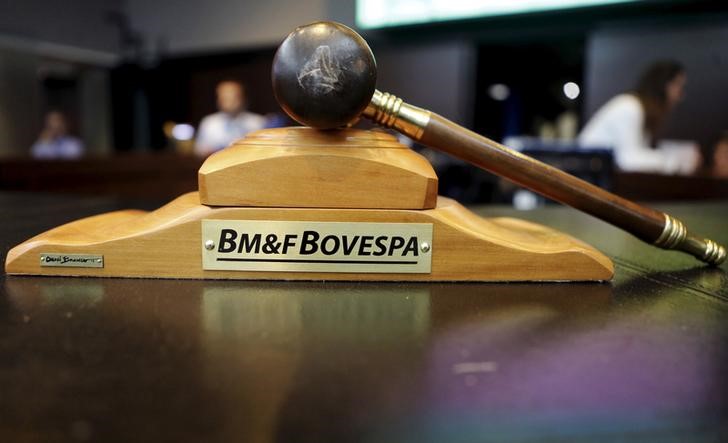By Bruno Federowski and Brad Haynes
SAO PAULO (Reuters) - Falling inventories of goods from steel to ethanol and cosmetics suggest Brazilian firms are finally turning the corner after years of disappointing earnings, potentially extending a stock rally that has so far been built largely on hope.
Year-end inventories held by companies on Brazil's benchmark Bovespa stock index (BVSP) fell in 2016 for the first time in four years to the lowest level since 2009, according to inflation-adjusted figures compiled by Reuters.
The figures exclude state-controlled oil company Petróleo Brasileiro SA (SA:PETR4) and miner Vale SA (SA:VALE5), which analysts tend to omit from studies because their size distorts the picture of the wider economy.
Analysts and economists say the inventory drop is one of the first concrete signs that a long-awaited turnaround is underway as Brazil recovers from its deepest recession in over a century.
The decline suggests demand is finally coming into line with managers' expectations after lagging even the most pessimistic forecasts for years.
That trend should start to boost financial results this year as companies pay less to sit on idle inventories.
The head of research at investment bank Banco BTG Pactual, Carlos Sequeira, expects profits at companies covered by his team to increase 18 percent in 2017, following a "disappointing" 10 percent rise in 2016.
"It's still a tough situation, but with an improving outlook," he said. "Capital costs went down but earnings growth did not materialize. Now we expect profits to increase fairly strongly this year."
A pickup in earnings would likely pour more fuel onto Brazil's strongest stock market rally in seven years, drawing more aggressive bets from investors who have been watching for the next leg of a turnaround in Latin America's largest economy.
The Bovespa index rose 40 percent in 2016 as investors bet center-right President Michel Temer would restore fiscal discipline after the impeachment of his leftist predecessor Dilma Rousseff.
The confidence of consumers and businesses has rebounded, but economic activity remains fragile, with the recession deepening unexpectedly in the last quarter of 2016.
Companies have cut debt and sold assets in preparation for a recovery, but strong topline growth has been elusive. Many reduced output and burned through inventories, left at high levels by years of weaker-than-expected demand.
INVENTORY ADJUSTMENT MOSTLY DONE
A survey of around 1,200 firms by think tank FGV showed an indicator of excessive industrial inventories hovering near three-year lows after hitting a seven-year high in 2015.
"Somewhere between two-thirds and three-quarters of the needed adjustment to inventory levels is done," said FGV economist Aloísio Campello.
To be sure, inventories provide little or no indication of demand at the finance, telecom and utility firms that make up about half of the Bovespa index, but the strong trend in heavy industries reinforced the government’s outlook for an investment-led recovery.
Steelmaker Gerdau SA (SA:GGBR4) reduced inventories by almost one-third last year while trimming output 7 percent. The company said its optimization of inventories helped cut working capital requirements by about 25 percent, according to a securities filing.
Chief Executive André Gerdau Johannpeter told analysts that steel demand in Brazil should recover as the economy picks up, starting in the second quarter.
Signs of an earnings rebound could encourage investors to increase bets on growth-sensitive stocks.
The lion's share of last year's rally came from state-controlled companies and firms with heavy government oversight, which benefited from the new administration's more market-friendly approach.
Now interest-rate sensitive sectors, such as homebuilders and shopping malls, have begun to outperform as the central bank cuts interest rates to boost growth.
Banks, toll road operators and other cyclical sectors would usually be the next shares buoyed by a recovery but traders remain cautious amid mixed economic signals.
"Everybody is just waiting to pull the trigger and that could happen sooner rather than later," said a São Paulo-based fund manager at a foreign investment bank.
